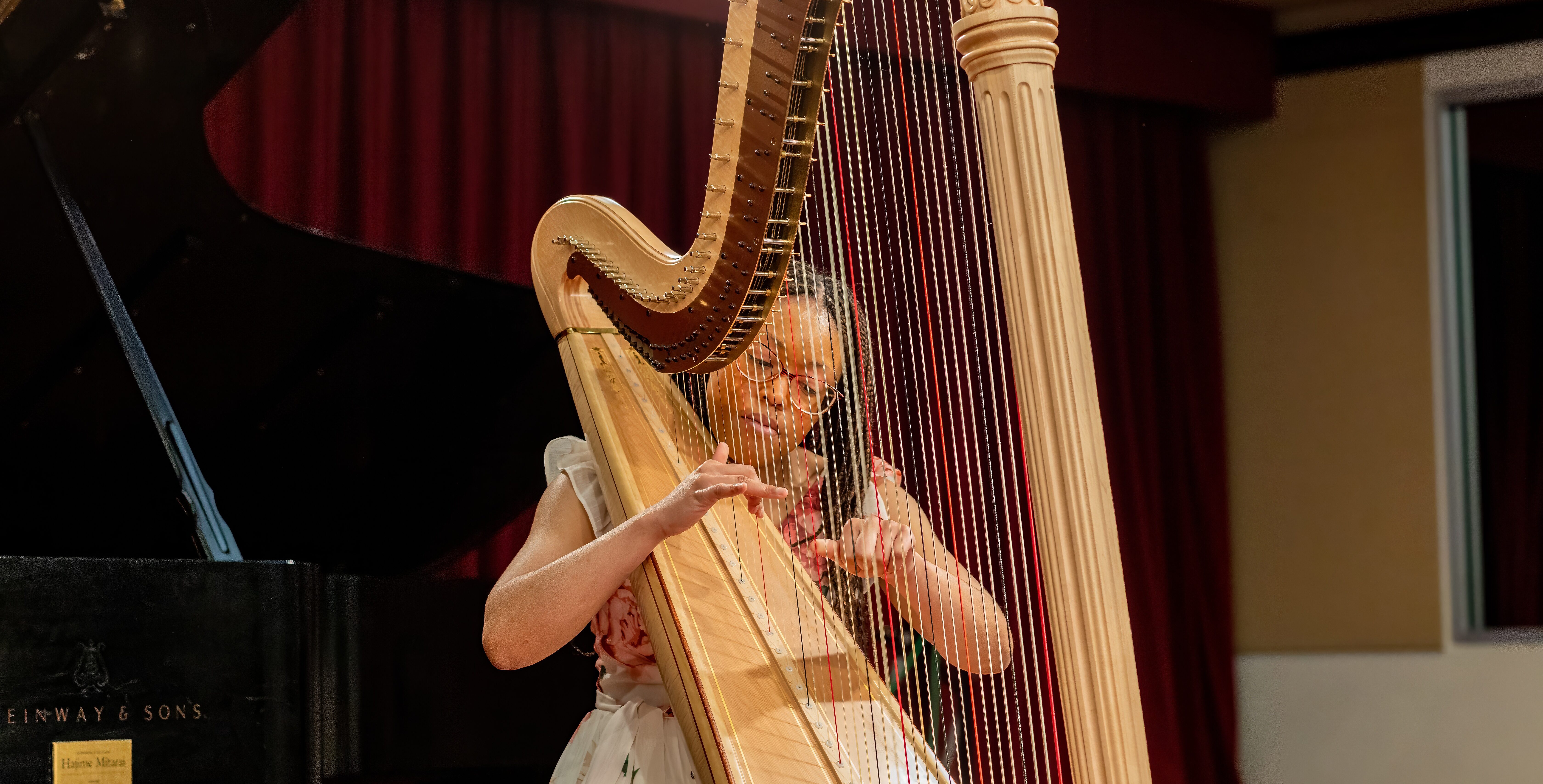Every February, we celebrate Black History Month by highlighting the achievements and resilience of Black people. As music students and music educators, it’s more than a celebration—it’s an opportunity to learn about the many Black artists who have shaped the musical landscape and to explore the rich repertory of music they have written and continue to write today.
Due to its European roots, the classical music canon is often dominated by the music of white male composers, while Black artists and their music have often been systemically excluded. While we may never recover all the music by Black composers that has been lost to history, a number of organizations and research centers have compiled important databases and resources to preserve and catalog these invaluable works of art.
Below are a few of these resources to aid our students and community in their study of Black composers and their music, as well as programs that support young BIPOC musicians. We look forward to adding to this list of resources and compiling more resource banks celebrating the music and artists of underrepresented communities during the upcoming history and heritage months this year and beyond.
Discover Repertoire and Composers
- Music by Black Composers fills a major diversity gap in sheet music by publishing books of music exclusively by Black composers and offering robust online resources. Their website includes repertoire directories for violin, piano, and classical guitar, as well as a new volume of beginner-level violin music by Black composers.
- The Library of Congress has many online resources to learn about Black composers, including digital scores, audio recordings, articles, and video performances from the Library of Congress Concert Series.
- The Institute for Composer Diversity at SUNY Fredonia has a searchable and filterable composer database where you can find artist profiles based on the genre and instrumentation they have written for.
- For brass musicians, Last Row Music has an ever-evolving database of music by Black composers for solo brass instruments and brass ensembles of varying instrumentation.
- Pianists can use a variety of identifiers in the keyword search to find music by composers from underrepresented communities on A Seat At the Piano’s database.
- The Archives of African American Music and Culture at Indiana University features resources and materials as well as a documentary video series focused on the music and stories of Black artists across musical genres.
This Black History Month, Levine faculty member Johnny Walker shared some of the composers he is excited to revisit. Click here to learn more about his playlist featuring some of the composers listed below.
Programs Supporting BIPOC Musicians
- The Washington Musical Pathways Initiative, Levine’s partnership with the Kennedy Center, National Symphony Orchestra, and DC Youth Orchestra Program, is a talent-development program for musicians identifying as BIPOC who want to pursue advanced study in music. Through musical and extra-musical means, the program supports pre-collegiate musicians from communities that have been historically excluded from classical music due to systemic racism.
- The Sphinx Organization is a “social justice organization dedicated to transforming lives through the power of diversity in the arts.” From its early days as a competition for Black and Latinx musicians, Sphinx now offers a myriad of programs from education and artist development to arts leadership.
- As the national convener of pathways programs with missions like WMPI, Equity Arc promotes greater diversity on the classical music stage by supporting organizations to become more equitable and inclusive. WMPI and Levine are members of Equity Arc, and Levine’s President and CEO, Jeffery Tribble Jr., serves on the Board of Directors as one of its Co-Chairs.

Learn More About Black History Month
- The US’s official website on Black History Month brings together information on events and resources on Black history from across the Library of Congress and the National Endowment for the Humanities, the National Gallery of Art, the National Park Service, the Smithsonian Institution, the United States Holocaust Memorial Museum, and US National Archives and Records Administration.
- Discover the origins of Black History Month on the Association for the Study of African American Life and History’s website, from Carter G. Woodson and the annual celebration’s beginnings in 1915 to the 2024 theme of African Americans and the Arts.
- Check out events, resources, exhibitions, and podcasts for Black History Month 2024 hosted by The Smithsonian Institute and the National Museum of African American History and Culture.
Community and Accessibility at Levine
Since our founding in 1976, Levine Music has been committed to cultivating an inclusive and supportive community that educates, inspires, and provides opportunities for all students, families, faculty, and staff. The art form of music has developed throughout the course of human history, serving a variety of sacred and secular functions in the history of nearly every culture across the globe. In our study of musical traditions past and present, we come across examples of historical figures, events, and ideologies that contradict our values. In our role as music educators, Levine not only provides context for these examples but also provides opportunities to expand our repertoire to include works, genres, artists, and cultures historically excluded from the canon.
Levine’s Community and Accessibility Working Group meets regularly to ensure we embody these ideals by monitoring our work, creating best practices, and encouraging transparency in the continual integration of Levine’s core values throughout our campuses and programs.
Learn more about Levine’s commitment to Community and Accessibility and our Community and Accessibility Working Group and its initiatives.




